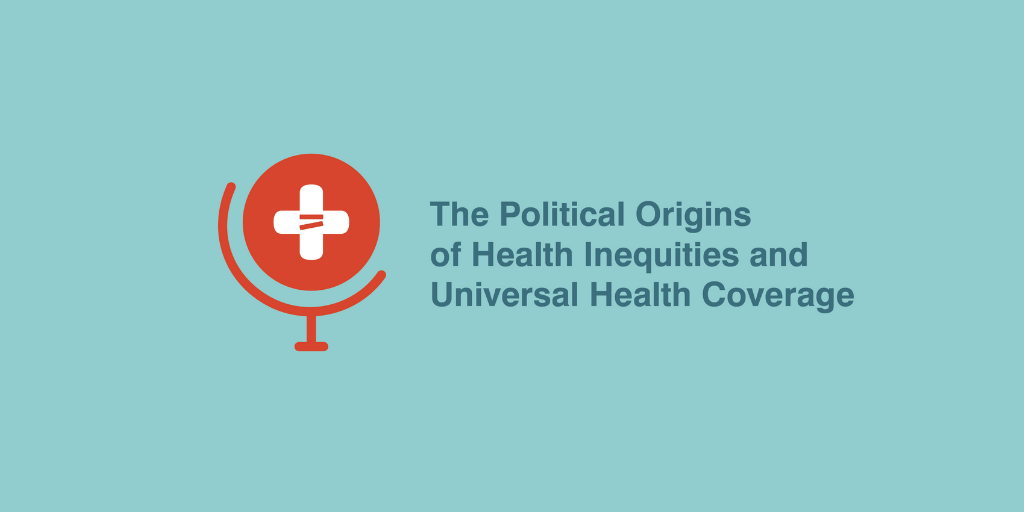
(Cross-posted from the BMC Blog where it was published first)
Dr. Tedros Adhanom Ghebreyesus, Director-General of the World Health Organization (WHO), has stated that universal health coverage (UHC) is “a political choice”. But what does it mean to say that UHC is political?
The politics of UHC
Universal health coverage (UHC) is a key policy priority of our times, endorsed by the United Nations General Assembly as central to achieving the Sustainable Development Goals.
The World Health Organization defines UHC as all people having access to the health services they need, when and where they need them, without financial hardship. This may sound like pie in the sky when out-of-pocket health expenses push 100 million people into extreme poverty each year.
Global-level debates about UHC have focused on how countries can reform their health financing systems towards universal coverage. The popular “UHC Cube” visualises three dimensions for expanding coverage: to individuals previously not covered, to services previously not covered, or to reduce the direct payments needed for each service.
Yet, to achieve UHC we must think beyond this cube. We need to recognise that countries’ ability to enact policies in support of UHC and its underlying aim of greater health equity are also shaped by transnational political processes that often lie outside of the health sector.
The political origins of health inequities
The need for greater attention to the political origins of health inequity was the headline finding in the final report of the Lancet-University of Oslo Commission on Global Governance for Health, published five years ago.
The Commission showed that unacceptable health inequities within and between countries cannot be addressed only through healthcare or domestic policies. We should also recognise norms, policies and practices across nations as political determinants of health that cause and maintain health inequities.
As the Commission recommended, a follow-on Independent Expert Panel was set up with support from the University of Oslo, and has been conducting research and raising awareness. Last year, we convened a conference in Oslo bringing together academic and policymakers to discuss the politics of UHC. An important outcome of this gathering is a new special supplement of Globalization and Health we have co-edited.
Across 10 original articles and commentaries, this special issue provides critical historical and social scientific analyses of how power relations and transnational political and commercial interests shape the prospects for achieving UHC in a variety of settings – from the US and Japan to Sri Lanka, Brazil and Mozambique.
21st century capitalism and the commodification of healthcare
The special issue shows how UHC is challenged by global financialised capitalism, characterised by liberalisation, privatisation and a shift towards intangibles like financial products and intellectual property in trade policy. Such financialisation undermines domestic tax bases that support government programming and restricts the policy space available for governments to adopt pro-health regulations.
The impact of trade and investment agreements on pharmaceutical policy is a powerful case in point. Provisions in these agreements often favour the interests of pharmaceutical companies, curtailing the ability of countries to steer policy in ways that ensure equitable and affordable access to safe and effective medicines – a key component of UHC.
The values and practices of 21st century capitalism also displaces a vision of health as a human right guaranteed through a social contract with the state, with that of healthcare as a commodity. Gaps in public social safety nets, for example, have fuelled the rise of medical crowdfunding platforms – privatised philanthropic financing arrangements that cannot be expected to ensure universal protection. These platforms can exacerbate inequities, since access to health services depends on individuals’ ability to compete with others to raise funds.
UHC and the struggle for health justice
Taken together, the articles highlight the risks of private sector capture of the health sector, and the limit of insurance-based models of UHC focused on a limited package of health services rather than equitable universal access to healthcare.
At the same time, the authors show how productive it can be to recognise the struggle for UHC as part of broader political struggles for social, economic and health justice as shown in the experiences in Sri Lanka, Brazil and many other countries around the world.
The question remains: How can we promote health equity in policy approaches to UHC? The special supplement does not provide all the answers, but makes a strong call for greater scholarly attention to the global power structures that shape the norms, practices and policy choices available in pursuing UHC. This includes not only domestic health policy and financing reform, but also the transnational political and regulatory challenges to global health equity.
The special supplement on the Political determinants of universal health coverage is available open access here.